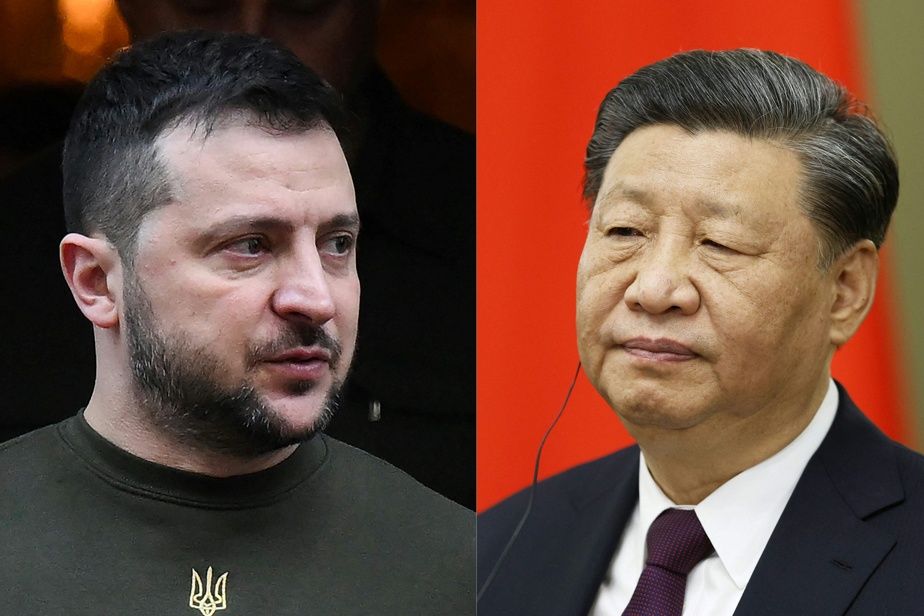The call that we no longer expected took place. More than a year after the Russian invasion of Ukraine, Presidents Xi Jinping and Volodymyr Zelensky finally spoke on the phone.
But for President Xi, there is no question of talking about “war” or even mentioning Russia by name. After all, you have to stay above the fray and avoid compromising yourself at the expense of your Russian friend. Thus, sovereignty and territorial integrity are at the heart of bilateral relations between… Ukraine and China.
By reiterating fine grand principles, such as “China has always been on the side of peace”, Xi is hinting without overstatement that his country is ready to play a role in resolving the conflict. However, it does not specify that the whole thing should be an outcome based on the Charter of the United Nations and respect for international law.
For facilitation or mediation to take place, whether by China or any other country or organization, there are two prerequisites. On the one hand, the parties to the conflict must be ready to negotiate. However, to date, neither Russia nor Ukraine seem willing to do so. In addition, the parties must agree on the choice of a facilitator or mediator. However, there is no indication that Russia or Ukraine are not ready to entrust such a role to China.
China certainly enjoys credibility with Russia. But it’s a safe bet that President Putin will be reluctant to cede any shred of power to anyone to settle the dispute unless he is sure it will be done on his own terms. He will not trust even his closest circumstantial partner with whom, it should be remembered, relations have been tumultuous throughout contemporary history. The lukewarm, even worried, reaction from the Kremlin to the call between Xi and Zelensky says a lot.
China’s credibility with Ukraine is of course tenuous. Although relations between the two countries were very fruitful until the Russian invasion, the Ukrainians will have noted with great regret that their friendship with China was no match for the latter’s choice to establish a ” boundless friendship” with Russia. Moreover, the conversation between the two presidents would have taken place at the initiative of Ukraine. It was not China that reached out.
Moreover, China intends to send a special envoy to Ukraine, in the person of Li Hui, former Chinese ambassador to Russia. Ironically, the latter received a Friendship Medal awarded by none other than President Putin, in 2019. In terms of neutrality, we will come back.
An additional challenge for China will be to distance itself from Russia’s scorched earth approach, the latter having radically broken with the United States and Europe. China, aware of its own interests that are sometimes converging and sometimes distinct from those of Russia, will seek as best they can to maintain a minimum of useful relations with the United States and above all to woo Europe.
On the Russian side, we will continue to bet on the partnership with China, without letting the latter play a role that is too influential and risky with regard to the interests of the Kremlin. Ukraine, for its part, will continue to deploy an approach aimed at not offending China and even trying to get it to consider its views and interests more actively.
If there is one thing that is certainly positive to emphasize about China’s positions, it is its opposition to the use of nuclear weapons, which has been repeated many times. However, this does not prevent Putin from blowing hot and cold on the matter and which says a lot about a relationship based on the relative interests, power and influence of each.

